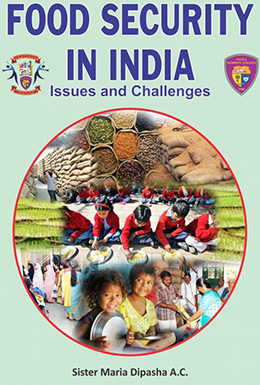
The issue of Food Security in India is of vital importance. India has been aiming at food security since Independence. Jawaharlal Nehru articulated this goal, by emphasizing �everything else can wait, but not agriculture.� Through the efforts of scientists and government leaders, new strategies were adapted in agriculture, which led to the �Green Revolution� in the 1970�s. From then on, India has become self-sufficient in food grains to a large extent. We know that the availability of food grains has been ensured through buffer stock, procured by the government through the Food Corporation of India, and is distributed through the Public Distribution System. But this system is not up to the mark. Provision of leakage proof and an efficient Public Distribution System is a challenge for food security. At present, there are several poverty alleviation programmes, mostly in rural areas, which try to help the poor people to be food secure. \nThe National Food Security Bill has been the subject of much debate and it is supposed to ensure to people freedom from hunger, malnutrition and other deprivations associated with the lack of food. This requires, not only nutritious food but also attention to child care, clean water, hygiene, basic health care and so on. The Bill has been described as India�s most ambitious welfare initiative, as it gives more than 800 million Indians a legal right to subsidized grains. It includes the Midday Meal Scheme, Integrated Child Development Services scheme and the Public Distribution System. Further, it recognizes maternity entitlements. The Midday Meal scheme and the Integrated Child Development Services Scheme are universal in nature, whereas the PDS will reach about two-thirds of the population (75% in rural areas and 50% in urban areas). \nThe present volume contains 21 well researched papers authored by experts in the field. The insights shared in these articles, reflect these issues on food security, which is as important as national security. I am convinced that the selected papers of the National Seminar, published in the proceedings, will, in turn, pave the way for all the policy makers, academicians and research scholars to find out some new ways to solve the problems of starvation and malnutrition, in our country.
| Year | 2015 |
|---|---|
| Pages | 248 |
| Edition | Hard Bound |
| Author Name | Sister Maria Dipasha A.C. |
| About the Authors | Sister Maria Dipasha A.C. |